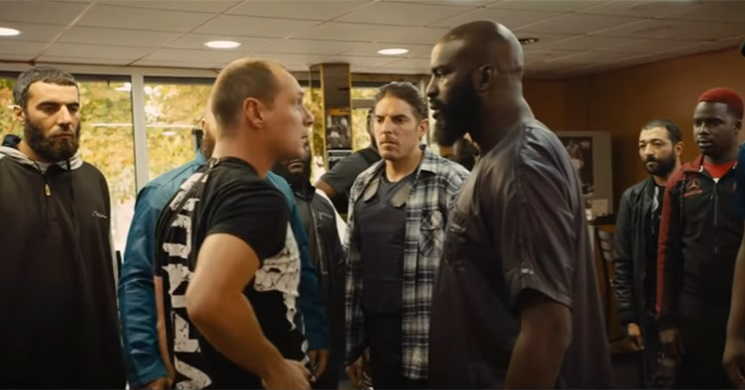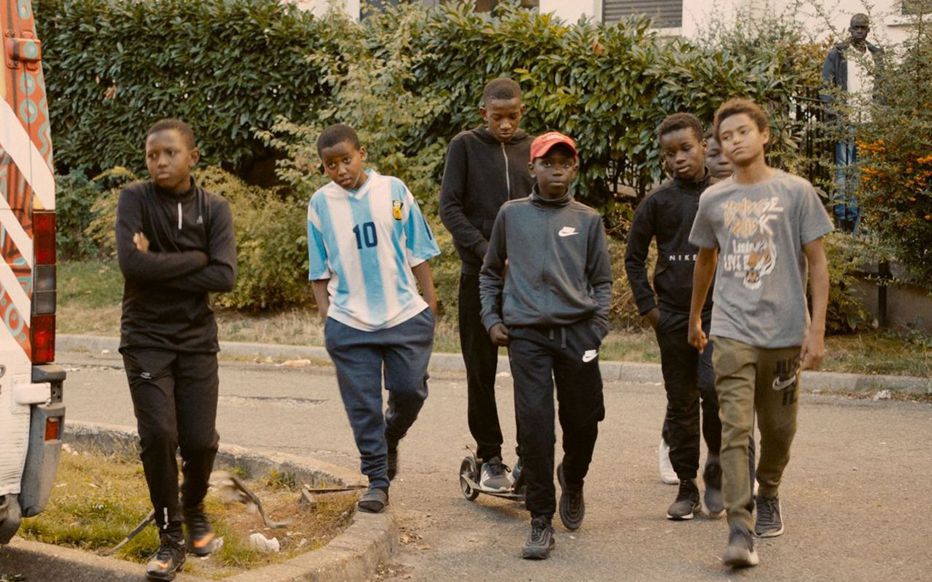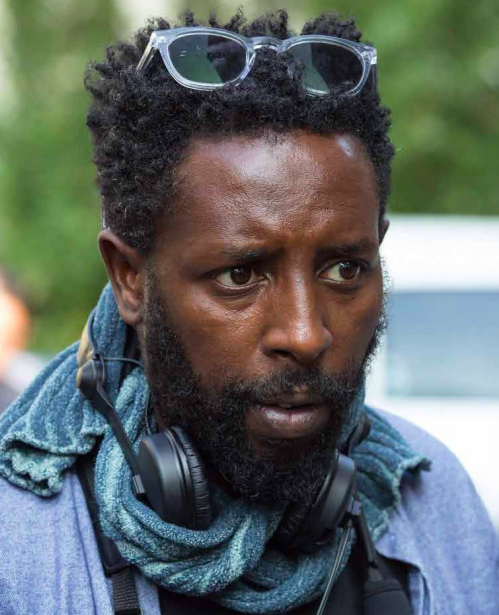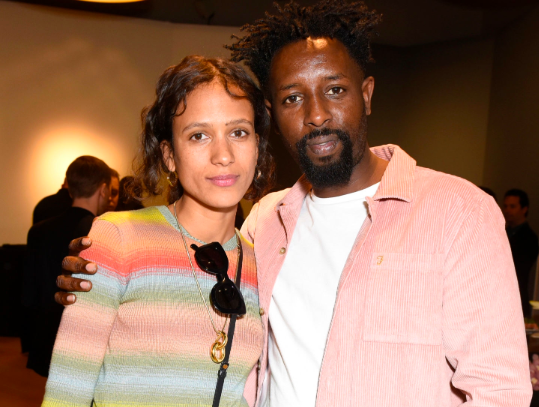Interview: Ladj Ly on 'Les Miserables'
 Friday, January 10, 2020 at 10:31AM
Friday, January 10, 2020 at 10:31AM 
Winning a major prize at last May’s Cannes and the French finalist for Best International Film this year, Ladj Ly’s Les Misérables is a searing story of an escalating volatile situation taking place in Montfermeil, a Parisian project. A new policeman Stéphane (Damien Bonnard) joins the anti-crime squad and is paired up with Chris (Alexis Manenti) and Gwada (Djebril Zonga), whose methods are sometimes brutal and against the people they are supposed to be protecting. The trio get into a whole heap of trouble when they use excessive force on a gang of young boys misbehaving. The film builds sustainable tension across its running time until it boils over, with assured intense filmmaking.
We recently met with Ly in New York to discuss his film, opening today in limited release. [This interview was conducted in French and English with the help of an interpreter and has been edited and condensed for clarity.]
Murtada Elfadl: The film has a lot of perspectives. The police, young Issa and his friends, the many factions living in the area. Can you talk about balancing the different perspectives and different characters?
Ladj Ly: It was very important for me to tell this story from different points of view. The most important point of view is probably is the cop who turns up and doesn't know anything about this world and is discovering this world. So I thought that the viewer would be able to put him or herself in his place and discover the world with him. But I also wanted to tell the story through the points of view of all the other characters that occupy this historic territory. It was very important to tell all the different points of view, knowing that all the stories in the film are real. These are things that I've lived that have happened to me. So I tried to balance all the different points of view and I can't explain to you specifically how I did it, but I needed to use all these points of view to tell the story.
You mentioned the character of the outsider cop which makes me wonder why center the police in a story ostensibly about a revolt against them?
Well, for one thing, no one was expecting me to make a film from the point of view of the Damien Bonnard character. From my previous films, I'm generally known for being against cops. My documentaries seem to are about that, so no one was expecting this from me. But I also thought that it was important to talk about the police. Now I'm someone who has a very particular relationship to the police. I've been filming them for 10 years. I've been detained numerous times. They've pressed charges against me for various things. So I felt that I was in a position where I could talk about them, but I didn't want to pass judgment. I really wanted to show what it is to be a cop in that world. I think it was important too, so that cops can understand this story. In my opinion, Les Miserables, the miserable is everyone. It's the inhabitants of these neighborhoods. But it's also these policemen who have to work in very difficult circumstances. Now, I'm not gonna defend them because some of them behave very badly. But the most important thing was to be accurate and not to take sides. And I think that that ultimately is the film's strength.

And I want to talk about the casting of the younger cast, particularly Issa Perica who played Issa.
Well, I had decided that I wanted to work with non-professionals, with the exception of the actors who play the three cops and Jeanne Blibar and a few guests. We took this gamble, this huge challenge of working with kids who had no experience, at least no film experience. So the casting was entirely carried out in the housing estates in the neighborhood. We did screen tests with these kids and we had a lot of good surprises. Notably the kid who plays Issa was just incredible. And for the others, those who were good in the screen tests, we took the best and that was it.
Can you talk about managing that on set with non professionals and professionals in the same scenes?
I want to tell you that it's done simply actually. I do a lot of talking beforehand. When the kids come on the shoot, I just put them in the situation. They don't read the screenplay. They arrive not knowing what they're going to do, but I really take the time to talk to them. A lot. I explain the scene, what it means. And then once we're actually shooting, it's generally just great surprises because these kids are so good that, the first take, the second take or at worst the third take would be the one.
 Yes, they are all really great. What about the big set piece that ends the film. It's very exciting as a sequence, with a lot of details, a lot of action in limited space. So can you talk about the mechanics of shooting it? How long it took, and how it was edited?
Yes, they are all really great. What about the big set piece that ends the film. It's very exciting as a sequence, with a lot of details, a lot of action in limited space. So can you talk about the mechanics of shooting it? How long it took, and how it was edited?
For starters, that's a situation that I experienced in real life. So that really helps a lot in terms of mise-en-scène, in terms of state staging. And I have to say it's a sequence that I had so much fun shooting. I mean these big sequences are the ones where I really have a lot of fun. We shot it in two days with a hundred background actors. These situations on set where it's chaotic, things are going off in every direction are the ones where I'm having the most fun, where I'm the most relaxed. By far the hardest scene for me to shoot on this film was actually the face to face conversation in the bar between the two cops. That's the one where I had a really hard time. It's the only one where I put the camera on sticks and it wasn't moving and I found it really hard. I don't want to say that action scenes are easy for me, but a little bit. And then in terms of the editing, again, we had a lot of fun. We had a lot of images because we shot with two cameras all the time. So we had a lot of different possibilities. We have a lot of different frame sizes and it's just fun.
Can you expand on why the scene in the bar was hard to shoot?
Because as soon as I put down the sticks, as soon as the camera is going to be in one place, it is just a pain in my ass. I don't like it. At the same time, it's also true that for the actors, they had a lot of lines, they had to really nail the scene. That was also challenging.
You mentioned a couple of times that some of the events in the film happened to you. Was it hard to face these things that happened to you again?
No.
Anything more?
(Nods negative).
The movie went to Cannes, won a prize, now it's France entry for the Oscar. These are signs of establishment success. What does all this mean for you? Directors get asked back to Cannes, same for the Oscars.
We'll see.
Does it bring you joy? Added responsibility? What does it mean for you?
First of all, it's a really strong and important signal to people like me. All those people who want to make films, but who thought that there was no hope, that it wasn't possible. People who come from way down below, from the bottom of the ladder. It gives them hope. It shows that even if you start from nothing, you can get up the ladder, you can get to do what you wanted. And I think it's really important to have that hope. So I hope that there will be more and more people like me who get to make their films. As for me personally, I'm hoping that it will allow me to develop my next films and that it won't be as difficult as it was to get the financing for these future projects as it was for this film because it really wasn't easy.
 Ly with Mati Diop at last week's Palm Springs Film Festival
Ly with Mati Diop at last week's Palm Springs Film Festival
At Cannes this year two other films - Zombi Child and Young Ahmed - from white European directors from a previous generation also addressed the effects of immigration and culture clash in Europe. I thought those films played into stereotypes. Do you think of your movie being in conversation with what other filmmakers are making about migration in Europe?
To be honest with you, I haven't seen them. I'm not a cinephile. I watch very few films.
In general then, there are several stories about the effects of migration. From France, the UK, Belgium. Documentary and narrative. Because there is a very distinct difference between what the older generation, like Bonello or the Dardennes are making, and what you or Mati Diop are making for example?
Well, it's true. France and the UK have a very strong history of immigration. If I look just at France, there's slavery, colonization. France called our parents to rebuild and then parked us in housing estates, in ghettos. It's good to talk about these things. And you know, a previous generation did talk about it in a different way. And today there's people like Mati Diop, like me. We're a new generation talking about migration in our own way. We're French, unlike our parents, we were born in France. We're from here and we're talking about it in our own way and I think this is a story and a history that's going to stick around for a long time because France is a country of immigration. Though it's not only that.
For my final question, I'm just curious. You mentioned that you're not a cinephile. Can you tell me about your artistic inspirations, if it's not cinema.
For this film, I was especially inspired by Training Day and Kathryn Bigelow's Detroit. Those are two films that really inspired me. And when I was younger, it was really mostly American films that I was into, especially black American films, because they were the only films that I could identify with as a black man living in France. You know? That's why I found French films so boring because I couldn't recognize myself in the characters and in the situation. So the films that really meant a lot to me were New Jack City, Boyz n the Hood, Menace to Society, Malcolm X. These are the films that inspired me earlier.
Les Misérables opens today January 10th in limited release.



Reader Comments (5)
I just got through streaming this movie this morning (Indie Spirit voter). The Training Day influence hit me right from the beginning. It's as tense and exciting as Uncut Gems and the equal of Parasite. Would like to see it with an audience.
I know you're all Team Sciamma but you should all go see it. Love the last shot.
I adored Portrait of a Lady on Fire, but Les Misérables exceeds it. What a great film!
When a country produces two films of this caliber, it seems unfortunate that AMPAS restricts submissions to one per nation. The best international films of the year are Les Misérables, Pain and Glory, Parasite, Portrait of a Lady on Fire, and Retablo,
It is a good movie - and goodness knows France must have had a hard time this year picking a movie to submit.
Love the shout out to Mati Diop. They may have similar backgrounds, but their two movies are very different. And that's yet another reason to be a cinephile. :)
I feel bad because I got into this "Portrait " vs "Les Mes" argument online when really I and all film lovers should be championing both and pushing for more international film inclusion in general.